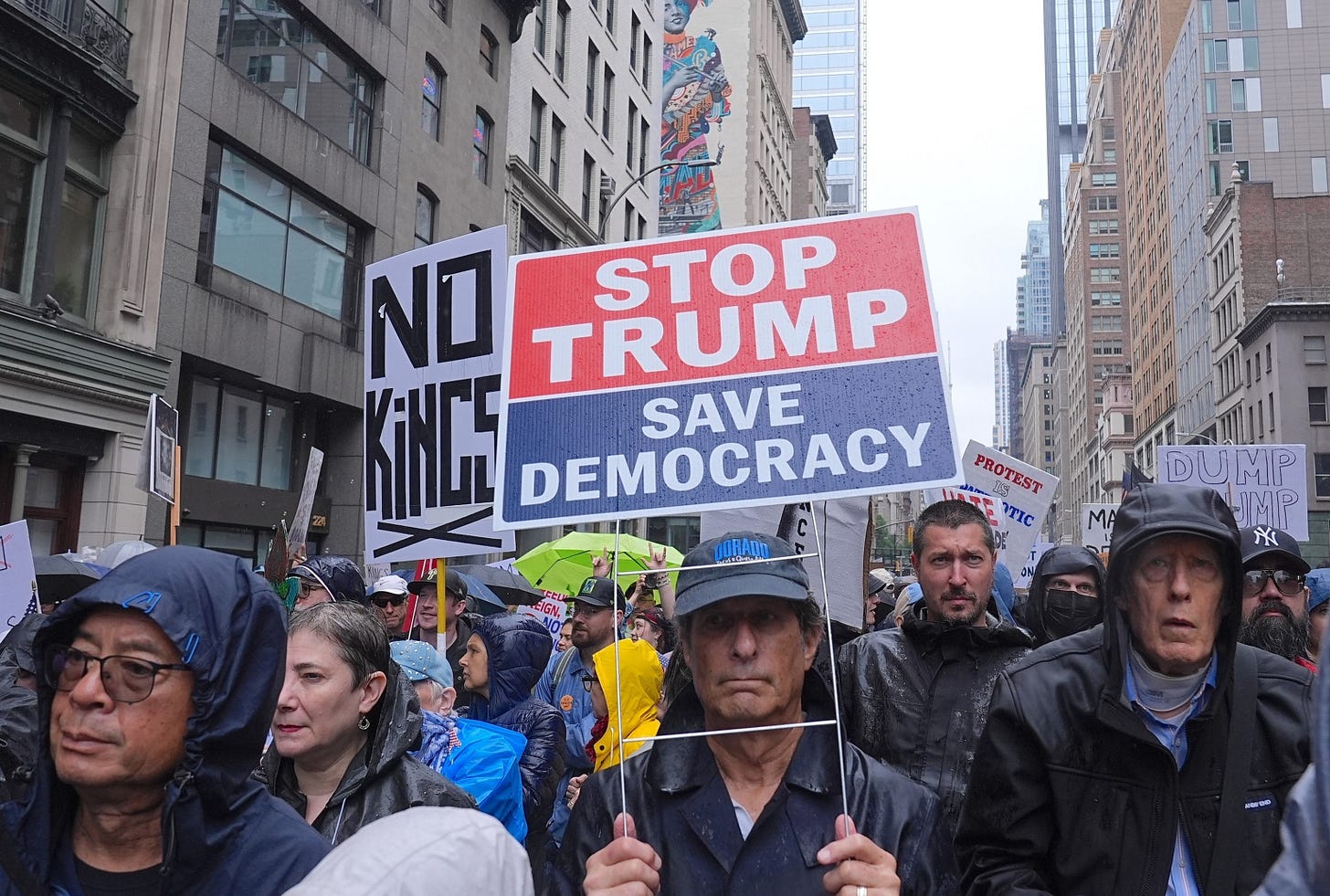"No Kings" vs. the Democrat Deep State
They oppose Presidential power because they don't want elections to matter. That's the true purpose of the Administrative State: to nerf elections and enable unfettered rule by unelected bureaucrats.
This analysis is free, but with Premium Membership you get MORE. Join today.
NOTE: The Republican response to today’s “No Kings” protests has been that Democrats’ outrage is selective. They hate Trump having power, but when they were in power, Obama famously said he didn’t need Congress because he had a “pen and a phone”. But hypocrisy is only half the story.
As I’ve chronicled unendingly here at The Rod Martin Report and in my recent Essays on the Counterrevolution, America has suffered unconstitutional one-party rule for nearly a century. FDR created the modern administrative state — allegedly “independent” agencies with legislative, executive, and judicial power fused, unaccountable to and unfireable by the elected President. He did so knowing that the millions of bureaucrats he hired would all do his bidding, but after he was gone, they would continue to do his bidding, regardless of the outcome of any election. And part of that bidding would be hiring their own, handpicked successo…





